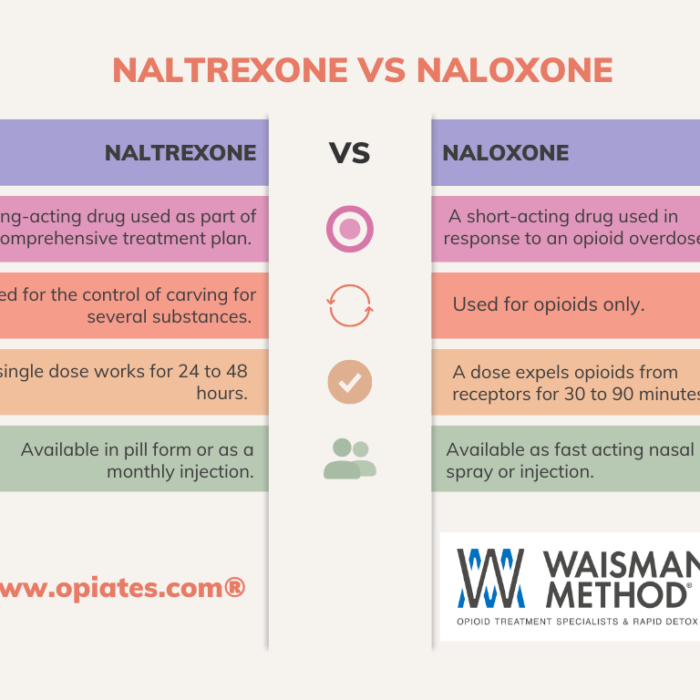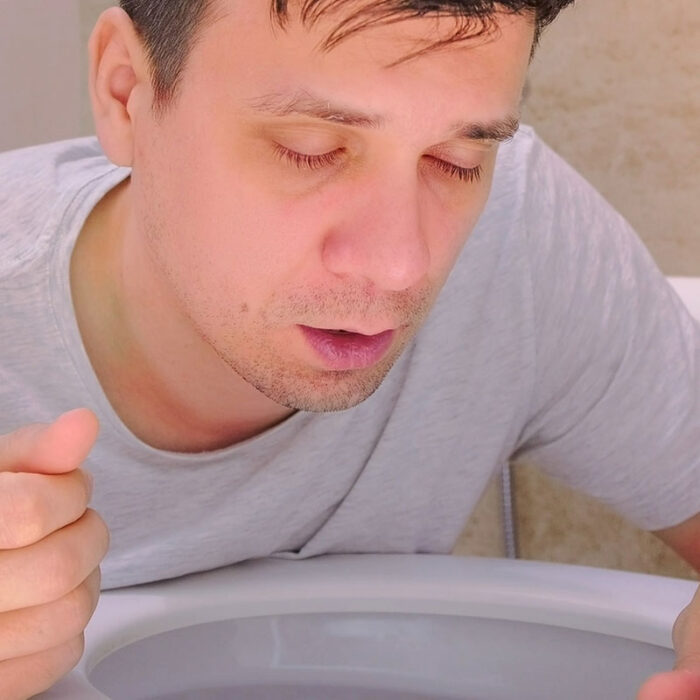People frequently — and mistakenly — use the terms “opioid dependence” and “opioid addiction” interchangeably. Still, these conditions are very different, and the treatment a person receives can mean the difference between life and death.
What Is Opioid Dependence?
Opioid dependence is not the same as addiction. Physical dependence can occur as the brain, and the body adapts to a drug’s presence and effects. If the opioid intake is suddenly interrupted, uncomfortable withdrawal symptoms are common. Dependence occurs when the body has reached the point of relying on a continuous external source of opioids to prevent withdrawal syndrome.
When opioid drugs are continuously present in a person’s system, the body and brain adjust to a new functioning form. In other words, the body depends on opiates to function. However, if the daily dosage is reduced or interrupted, physical withdrawal symptoms will occur.
Who Becomes Dependent on Opioids?
Dependence is not unique to illicit opioid drug users. Patients who receive legitimate opioid prescriptions for medical conditions can become dependent, similar to how people can become reliant on things like caffeine, antidepressant medications, and many other substances.
Although nearly all individuals who take opioids for an extended period will become dependent, not everyone becomes addicted. Opioid-dependent individuals might meet work, social, and family obligations, which distinguishes them from those suffering from addiction.
Symptoms of Opioid Dependence
Symptoms of opioid dependence can vary dramatically depending on numerous factors, such as the type of opiates taken and the dosage ingested.
Common symptoms of opioid dependence include:
- Constipation
- Cravings
- Emotional indifference
- Euphoria
- Lack of energy
- Small pupils
If the drug’s intake is reduced or interrupted, physical withdrawal symptoms will occur.
Examples of withdrawal symptoms in people who are opioid-dependent include:
- Anxiety
- Body aches
- Diarrhea
- High blood pressure
- Nausea and vomiting
- Rapid heart rate
- Sleeplessness
- Sweating
Withdrawal symptoms in opioid dependence are different from and can be less severe than withdrawal in people struggling with opioid addiction. Dependent people often become tolerant of the drug they take, however. When a person’s tolerance leads to higher doses than the amount prescribed, they can become addicted.
If you have been prescribed an opiate for an extended period, you could develop a certain level of physical dependency, which is not uncommon. This dependency does not automatically mean you have an opioid addiction problem. If you suspect you might have an issue with your opioid use, you cannot manage yourself. However, learn about your treatment options.
Medical treatments are available to help someone overcome opioid dependence effectively and more comfortably and safely than cold turkey. Suppose you or someone you know is struggling with dependency. In that case, research reputable detoxification centers’ treatment options—specific medical treatments like anesthesia-assisted opiate detox may be the solution to help you overcome opioid dependence.
Opioid Dependence Treatment
Compared with addiction, physical dependence is a medical solution’s physiological condition. There are many forms of medically assisted treatments for opioid dependence, including sedation-assisted rapid detox or methodically lowering the dose, referred to as tapering off the drug.
Opioid dependence treatment options vary based on the severity of the situation. Waismann Method® uses some of the most advanced medical protocols to treat opioid dependence. Their quadruple board-certified medical director and his team provide the professional care needed to successfully perform opioid detoxification, starting with a medical evaluation to determine the most appropriate treatment course for the individual.
Patients from 18 to 80 years of age can now safely become opioid-free, whether they are dependent on painkillers, heroin, or methadone. Waismann Method’s team has helped thousands of individuals and their families achieve healthier and happier lives. By conducting detox in an accredited hospital and providing aftercare in a private facility, the Waismann Method’s team ensures the patient’s safety throughout treatment.
What Is Opioid Addiction?
In contrast to opioid dependence, opioid addiction is a longer-term condition that can develop as dependence worsens. Addiction and prolonged use of opioids can affect the brain’s response to reward, motivation, and memory. The resulting dysfunction of specific circuitry in the brain can negatively impact the person biologically, psychologically, and socially.
These adverse effects of opioid addiction produce an inability to consistently control behavior and impair a person’s perception or recognition of harmful and risky actions. In other words, the overpowering craving for and preoccupation with obtaining and using drugs overpowers a person’s sense of responsible judgment and decision-making. Opioid addiction leads to a compulsive need for the drug, despite the harmful consequences to every aspect of its life.
Is Opioid Addiction a Physical or Behavioral Condition?
Advances in neurobiology research have shown that human behavior directly responds to chemical reactions in the brain. Therefore, opioid addiction is more than a behavioral disorder; it is the physical and emotional result of continuous opioid use. This type of drug addiction is an extremely progressive and harmful condition resulting in premature death. Comprehensive treatment, including detox and post-detox therapy, can help many people struggling with addiction.
Symptoms of Opioid Addiction
People suffering from opioid addiction often resist or delay the necessary actions to change their dysfunctional behavior, regardless of the adverse effects it may have on their lives or the lives of others. Such harmful decision-making can be a result of prolonged exposure to the drug.
Common symptoms of opioid addiction include:
- Difficulty identifying or controlling feelings
- Excessive time spent obsessing over where to obtain and use.
- Impaired judgment
- Increased anxiety
- Lack of behavioral control
- Neglect of basic responsibilities
- Overreaction or extreme sensitivity to stressors
- Significant damage to social, professional, and family relationships
The continuous, intense craving for opioids combined with addiction’s compulsive aspect makes seeking help challenging. Many people suffering from opioid addiction describe feeling powerless. If you’ve been using a prescribed opiate for an extended period and suspect your condition may have advanced from dependence to addiction, discuss possible treatment options with detox specialists like those at Waismann Method.
Opioid Addiction Treatment Options
Opioid addiction can be treated with medical detoxification procedures such as anesthesia-assisted detox. This rapid detox treatment involves putting the patient under sedation during detoxification to reduce the amount and length of withdrawal symptoms. Such an accelerated opioid detox flushes the substance from the person’s body, enabling them to quickly move on to post-detox recovery with a new lease on life.
Waismann Method conducts rapid detox treatments for opioid addiction in a private, full-service, accredited hospital. The medical team evaluates the patient’s needs before treatment to provide comprehensive care before, during, and after the detox procedure. Then the patient is discharged to an exclusive recovery center with aftercare support.
Waismann Method’s approach to opioid detox and recovery treatment dramatically reduces the likelihood of complications and relapse during the withdrawal period.
Critical Differences in Treating Opioid Dependence vs. Addiction
Understanding the differences between opioid addiction and dependence can help you spot warning signs and possible symptoms of developing an addiction. This knowledge also enables you to speak accurately about the conditions and their differences.
Opioid dependence is preventable, and it can be medically reversed with adequate medical detoxification. Opioid misuse — such as taking more doses than prescribed, taking the drug for longer than prescribed, or taking the medication for non-medical purposes — can lead to addictive behavior. Unlike dependence, addiction is viewed more as a behavioral reaction to long-term opioid use. It is primarily characterized by uncontrollable cravings and the inability to manage or discontinue drug use despite its harm.
If your loved one or you are suffering from opioid dependence or addiction, remember, there is help. There is a humane, dignified, and effective treatment available. You don’t need to feel ashamed or scared, and you don’t need to be locked away for months on end. Many different medical and individualized detox treatment options could be right for you.
Waismann Method Medically Assisted Detox Treatment
By discussing your specific needs with highly experienced detox treatment specialists, such as those at Waismann Method®, you can determine if you’re a candidate for rapid opioid detox or non-anesthesia alternative detox treatment. Their medical team can customize your opioid addiction treatment according to your pre-existing health concerns, the type of substances you have taken, and your level of opioid use.
Published on January 22, 2019
Reviewed by Clare Waismann, Certified Addiction Treatment Counselor and Waismann Method® Founder
All topics for the Opiates.com blog are selected and written based on high standards of editorial quality, including cited sources. Articles are reviewed by Clare Waismann, CATC, and founder of Waismann Method®, for accuracy, credibility, and relevancy to the audience. Clare Waismann is an expert on opioid dependence, opioid use disorder, substance dependence, detoxification treatments, detox recovery, and other topics covered on the Opiates.com blog. Some articles are additionally reviewed by one of Waismann Method ®’s specialists, depending on their field of expertise. For additional information and disclaimers regarding third-party sources and content for informational purposes only, please see our Terms of Service.

















